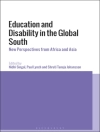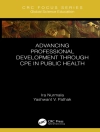Challenging conventional assumptions, the contributors to this interdisciplinary volume argue that premodern Muslim societies had diverse and changing varieties of public spheres, constructed according to premises different from those of Western societies. The public sphere, conceptualized as a separate and autonomous sphere between the official and private, is used to shed new light on familiar topics in Islamic history, such as the role of the shari`a (Islamic religious law), the `ulama’ (Islamic scholars), schools of law, Sufi brotherhoods, the Islamic endowment institution, and the relationship between power and culture, rulers and community, from the ninth to twentieth centuries.
Innehållsförteckning
Acknowledgments
Note on Transliteration
FOREWORD: THE RELIGIOUS PUBLIC SPHERE IN EARLY MUSLIM SOCIETIES
Dale F. Eickelman
INTRODUCTION
Miriam Hoexter and Nehemia Levtzion
1. THE MIHNA (INQUISITION) AND THE PUBLIC SPHERE
Nimrod Hurvitz
2. RELIGIOUS LEADERSHIP AND ASSOCIATIONS IN THE PUBLIC SPHERE OF SELJUK BAGHDAD
Daphna Ephrat
3. RELIGION IN THE PUBLIC SPHERE: RULERS, SCHOLARS, AND COMMONERS IN SYRIA UNDER ZANGID AND AYYUBID RULE (11501260)
Daniella Talmon-Heller
4. THE PUBLIC SPHERE AND CIVIL SOCIETY IN THE OTTOMAN EMPIRE
Haim Gerber
5. THE QADI’S ROLE IN THE ISLAMIZATION OF SEDENTARY TRIBAL SOCIETY
Aharon Layish
6. THE DYNAMICS OF SUFI BROTHERHOODS
Nehemia Levtzion
7. THE WAQF AND THE PUBLIC SPHERE
Miriam Hoexter
8. CONCLUDING REMARKS: PUBLIC SPHERE, CIVIL SOCIETY, AND POLITICAL DYNAMICS IN ISLAMIC SOCIETIES
Shmuel N. Eisenstadt
WORKS CITED
LIST OF CONTRIBUTORS
INDEX
Om författaren
Miriam Hoexter is Associate Professor of Islamic and Middle Eastern Studies at the Hebrew University of Jerusalem and the author of
Endowments, Rulers, and Community: Waqf al-Haramayn in Ottoman Algiers.
Shmuel N. Eisenstadt is Professor Emeritus of Sociology at the Hebrew University of Jerusalem and Senior Fellow at the Van Leer Jerusalem Institute. He has published many books, including most recently,
Fundamentalism, Sectarianism, and Revolution: The Jacobin Dimension of Modernity.
Nehemia Levtzion is Fuld and Bamberger Professor of History of the Muslim Peoples at the Hebrew University of Jerusalem. His most recent book, coedited with Randall L. Pouwels, is
The History of Islam in Africa.












